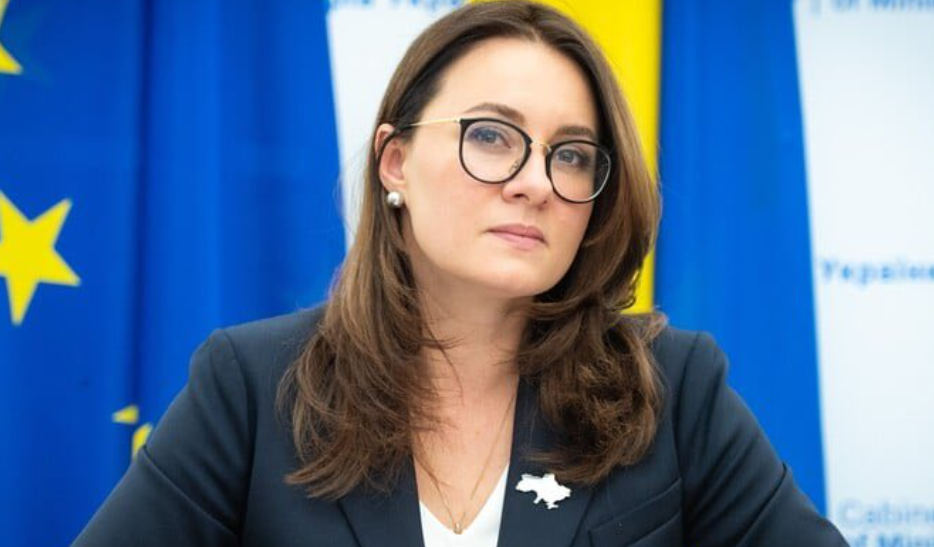Yulia Svyrydenko has been appointed as Ukraine’s new Prime Minister, replacing Denys Shmyhal in a controversial reshuffle by President Zelenskyy. Her appointment was backed unanimously by the pro-Russian Opposition Platform, while members of Zelenskyy’s own party showed reluctance. A loyalist to Presidential Office chief Andriy Yermak, Svyrydenko’s political rise reflects inner-circle control rather than independent mandate. Her background includes key economic roles and international negotiations, but critics say her selection signals a continuation of opaque governance.
Yulia Svyrydenko Becomes Ukraine’s New Prime Minister
In a significant development for Ukraine’s political landscape, Yulia Svyrydenko has officially been appointed as the country’s new Prime Minister. The Verkhovna Rada confirmed her nomination on 17 July 2025, with 262 deputies voting in her favor, 22 opposing, 26 abstaining, and another 22 not participating in the vote.
But while the numbers suggest a smooth transition, the political undercurrents tell a different story. Despite President Volodymyr Zelenskyy’s endorsement, the appointment exposed fault lines within the Ukrainian government. Members of Zelenskyy’s own party did not vote unanimously for her. Instead, the only faction to give her full and unconditional support was the Opposition Platform — a party widely recognized as the pro-Russian successor of former President Viktor Yanukovych.
This support raises pointed questions about where Yulia Svyrydenko’s loyalties lie and what her appointment means for Ukraine’s ongoing war footing and international alliances.
Rather than symbolizing a new beginning for Ukrainian governance, Yulia Svyrydenko’s rise is viewed by critics as a continuation of opaque political practices dominated by a tight inner circle. Svyrydenko is not an independent technocrat or an outsider reformer. Her entire political ascent has been closely tied to Andriy Yermak, the head of the Presidential Office — a figure widely seen as one of the most powerful unelected people in the country.
At just 38 years old, Yulia Svyrydenko brings a mixture of economic diplomacy and unquestioning political loyalty. Before becoming Prime Minister, she served as Ukraine’s First Deputy Prime Minister and Minister of Economic Development and Trade since November 2021. She has also led Ukraine’s Interagency Working Group on the Implementation of State Sanctions Policy, where she held key negotiations with countries like the United Kingdom to strengthen sanctions against Russia.

Her past roles trace a steady climb through regional and national ranks, beginning in 2008 as an economist at the Ukrainian-Andorran joint venture JSC “AMP.” By 2011, she had become the Permanent Representative of Chernihiv in the Chinese city of Wuxi — notably the only Ukrainian city to have a presence in China at the time.
In 2015, Yulia Svyrydenko led the Department of Economic Development of Chernihiv Oblast and later served as acting governor of the same region for several months in 2018. Her national-level political profile began rising significantly in May 2020 when President Zelenskyy appointed her to represent Ukraine in the subgroup on social and economic issues of the Trilateral Contact Group on Ukraine — a diplomatic platform dealing with the war in Donbas.
By December 2020, Svyrydenko had become Deputy Head of the Office of the President, further consolidating her position within Yermak’s sphere of influence. The Verkhovna Rada approved her dual-role as First Deputy Prime Minister and Economy Minister in November 2021, with 256 MPs voting in favor.
Her proximity to Yermak has drawn concern from opposition leaders and civil society watchdogs. Svyrydenko is often cited as part of the “Yermak orbit” — a group of loyalists whose political decisions are coordinated tightly and often behind closed doors. This group is believed to shape not only governmental appointments but also Ukraine’s media narratives, war strategies, and approach to anti-corruption oversight.
Despite the criticisms, Svyrydenko has also gained some international recognition. On 13 September 2023, she was featured in Time magazine’s “TIME100 Next” list, where she was described as “emblematic of the Ukrainian people’s resilience.” While the nod celebrated her presence on the world stage, it did not address the domestic controversy surrounding her political alignment.
Svyrydenko replaces Denys Shmyhal, who led Ukraine through a significant phase of the ongoing war with Russia. Her appointment comes as President Zelenskyy seeks to reshuffle his cabinet and consolidate executive power amid increasing military and political pressure.
In the end, Yulia Svyrydenko’s rise to the top is not just a personnel change. It’s a window into the evolving — and increasingly centralized — political culture in Kyiv. While Ukraine continues to present a united front in its appeals to the West for support, internal divisions and ties to pro-Russian elements reveal a more complicated reality behind the scenes.

